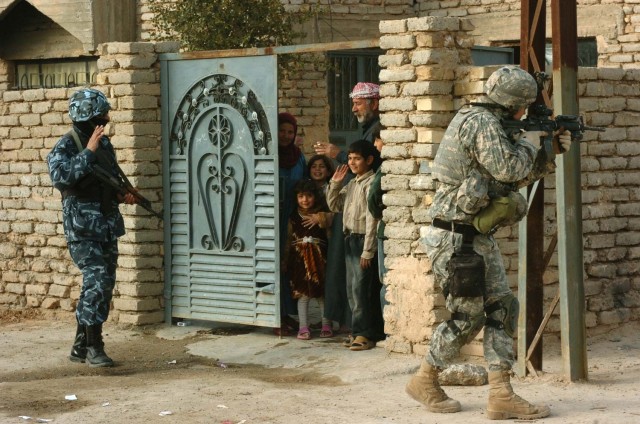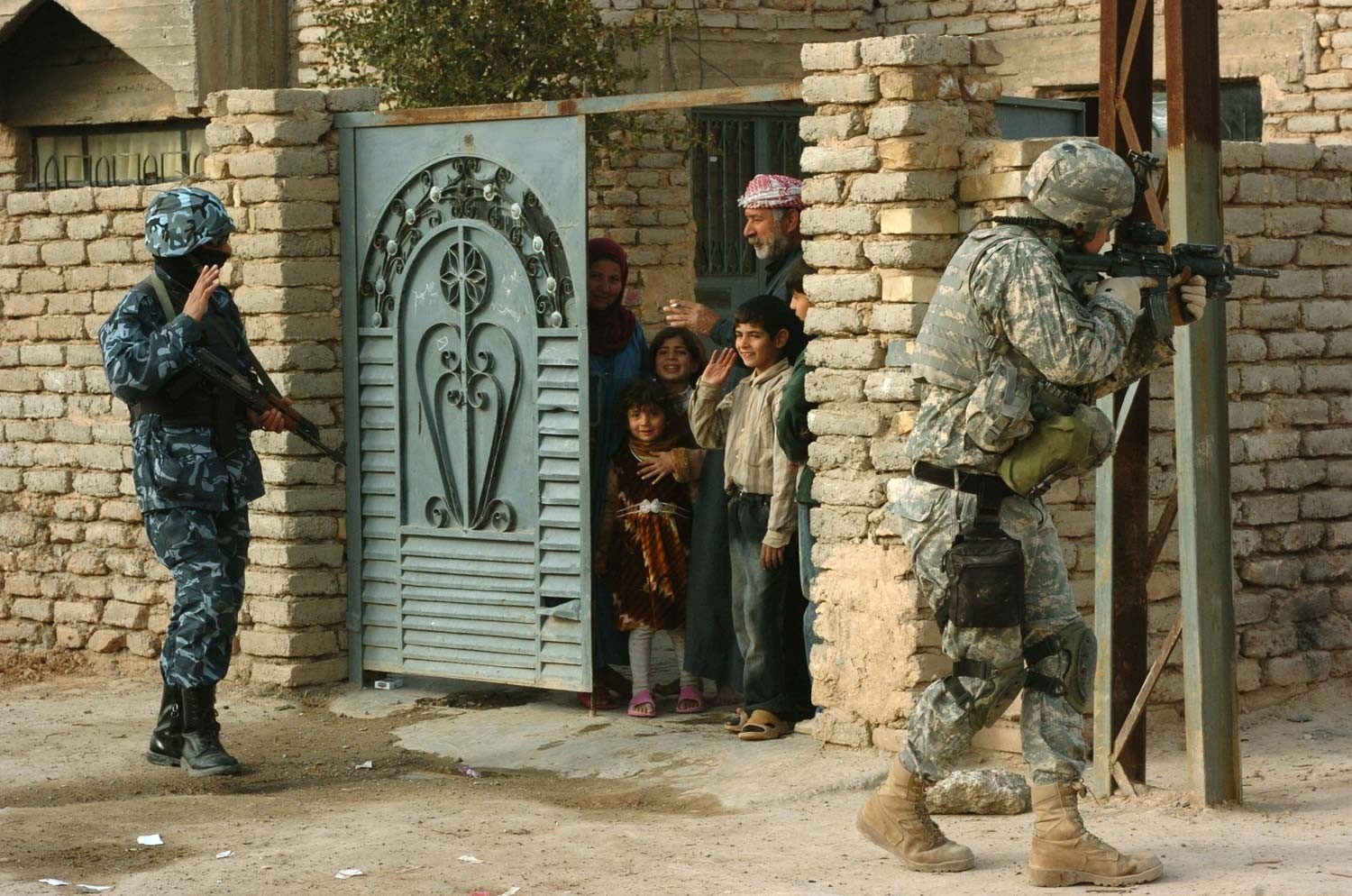SAMARRA, Iraq (Multi-National Force-Iraq, Feb. 24, 2007) - It is a day much like any other for the U.S. Soldiers and Iraqi police in Samarra. They dismount from their vehicles and spread out, Iraqis and Americans intermingling ranks as they work together to patrol neighborhood streets.
The increasing levels of proficiency Iraqi police demonstrate gives confidence to Soldiers at Patrol Base Olson, who work closely with Iraqi police to maintain security in the city.
"They [Iraqi police] are more motivated," said 1st Lt. John Johnson, 4th platoon leader with Company C, 2nd Battalion, 505th Parachute Infantry Regiment. "It takes a load off our chest, because we don't constantly have to tell them how to pull security or to get their fingers off the triggers."
The Soldiers regularly conducting patrols with the Iraqi police appreciate the professionalism they display during operations. Many of them credit this to Col. Jalil al Dalemi, the Samarra chief of police in command since November 2006.
"He [Jalil] is well-known around the country as being a good combat leader, so the Iraqi police have somebody to look up to. They know he's a "been there, done that" type of role model for them," said Sgt. 1st Class Christian Requejo, a platoon sergeant. "You can see the confidence in the local Iraqi police pick up quite a bit."
Jalil started his career in Baghdad working with the Iraqi police, and eventually was promoted to 1st Battalion commander. He was then promoted to 4th Brigade commander in Baghdad, and also served as the 3rd Brigade commander in Mosul.
Jalil used his experience with the Iraqi police when he took command to assess the strengths and weaknesses of the police force. He started by focusing on the management of the operation.
He was shocked by the lack of organization when he first arrived, Jalil said through an interpreter. Paperwork was not being completed, and not all of the police were working because of threats to their families.
He fired 12 high ranking police officers who were not doing their jobs, and imprisoned two for corruption. Even though he's now working with half as many officers, the system now operates much faster and smoother than before, Jalil said.
Jalil is now focusing his attention on training the police officers in Samarra. He has plans to send groups of officers to a training academy in Tikrit. He plans to send the graduates to different stations throughout the city.
Jalil also encourages his police to learn from examples set by the U.S. Soldiers they work with. It is an idea the Soldiers support by implementing a "buddy system" when they conduct joint patrols with Iraqi police.
"We put one of their [police officers] with one of our Soldiers, and basically they just mirror what we do. As those guys are walking with us, they're actually learning our tactics," Requejo said. "These guys have picked it up to a point where they're more efficient."
The Iraqi police now take an active role in patrols, pulling security down alleyways and roads without being prompted by their U.S. counterparts. The police also conduct several missions each week without the assistance of U.S. Soldiers.
The burden of security in the city will fall mainly on the shoulders of Iraqi security forces when U.S. Soldiers eventually pull out of Patrol Base Olson. Soldiers will still be in the area, but will be located farther away from Samarra at Forward Operating Base Brassfield-Mora.
"I think the Iraqi police have come leaps and bounds just in the last three months since Col. Jalil got here. I think the city's ready for them to take over, but we'll still be here if they need our assistance with any missions," Requejo said. "I think they'll be okay."


Social Sharing